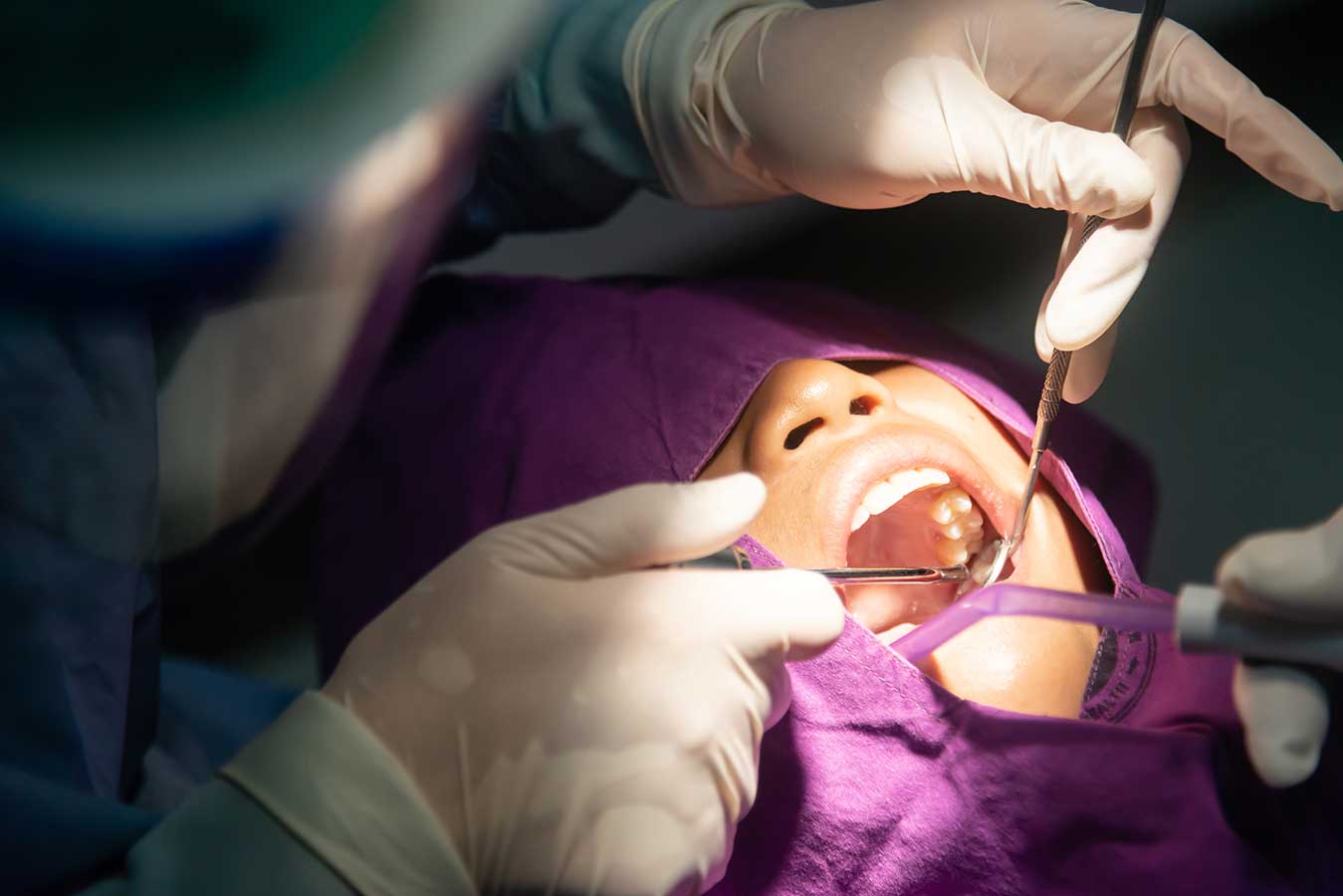Wisdom Tooth Removal

There are many people out there who fear having wisdom teeth removed. Are you one of these people?
Whether you are or not, wisdom teeth can often cause issues for people. It’s best to consider scheduling an appointment if your wisdom teeth are troublesome.
When it comes to removing wisdom teeth, this isn’t an all-day adventure. A straightforward procedure will take no longer than several minutes. It is uncommon for a procedure to last any longer than half an hour. This only happens when the tooth is unusual in size, shape, or position.
Do you have wisdom teeth that need to be removed? How do you know if they need to be removed? What is the process like in general? What are the indications? Keep reading to learn about having your wisdom teeth removed.
What are Wisdom Teeth?
The teeth we often call “wisdom teeth” are also known as third molars.
They most commonly grow into the mouth between the ages of 18 to 24. As they are the last teeth to grow, there is often little jaw space left for them, and that can cause them to grow into awkward positions, making them hard to clean and prone to infections.
Why You May Need Wisdom Teeth Removal?
The extraction of wisdom teeth isn’t always necessary. Sometimes they can grow into your mouth without negatively affecting oral health. However, it is just as common for them to cause issues. Below are some problems that can occur with wisdom teeth
- Wisdom teeth can easily develop cavities. This is because they’re tough to reach in the back of your mouth, especially if the wisdom teeth are crooked. Rather than trying to fill the tooth, it may be better to remove it.
- If you accrue a lot of plaque around the wisdom teeth, gingivitis (commonly known as gum disease) will develop. This can progress into more severe gum disease that can risk the health of the neighbouring teeth, as well as cause significant discomfort…
- If the wisdom tooth cannot grow properly into your mouth, there is often a flap of gum left over the top of the tooth. This area is prone to infection that can be very painful, known as pericoronitis. Pericoronitis tends to recur, and recurrences tend to increase in frequency and severity with time.
- You’ll want to have your wisdom teeth removed if you experience any type of bacterial infection in your mouth. Cyst developments in your mouth should raise red flags as well.
Wisdom Tooth Removal: What To Expect?
The first step is diagnosis – your wisdom teeth will be assessed, and necessary x-rays taken. Proper assessment of your wisdom teeth allows us to plan the appropriate method for removing them. This allows us to provide the safest and most comfortable extraction.
Next, your dentist will make a tiny incision into your gums. Afterwards, there will be a small piece of bone removed. This is the bone that covers your wisdom tooth. Then, your dentist will break the wisdom tooth into miniature pieces. This helps in the removal process.
How much time will it take?
This depends on the amount of work required from your dentist. But you can expect this procedure to be finished within several minutes. More complicated processes can take around half an hour. But this isn’t the common amount of time.
Caring For Your Mouth After The Procedure
The process to remove your wisdom teeth is only the first step towards recovering your oral health. You’ll also want to take the proper steps after the procedure to ensure that you have a healthy mouth throughout your future. Below are some tips to keep in mind.
- Try to stay away from hot drinks, such as coffee. Try to avoid hot foods as well.
- Stick with soft foods and cold drinks. Follow this tip until 24 hours after your procedure.
- Do your best to avoid contacting the area where your wisdom tooth has been removed.
- Give it time to heal. You shouldn’t touch it with your fingers, tongue, or a toothbrush.
- Continue to perform proper hygiene actions. Continue to brush your teeth and floss them as usual.
- Use a cold pack to numb the pain. And follow-up with your dentist for best results.
